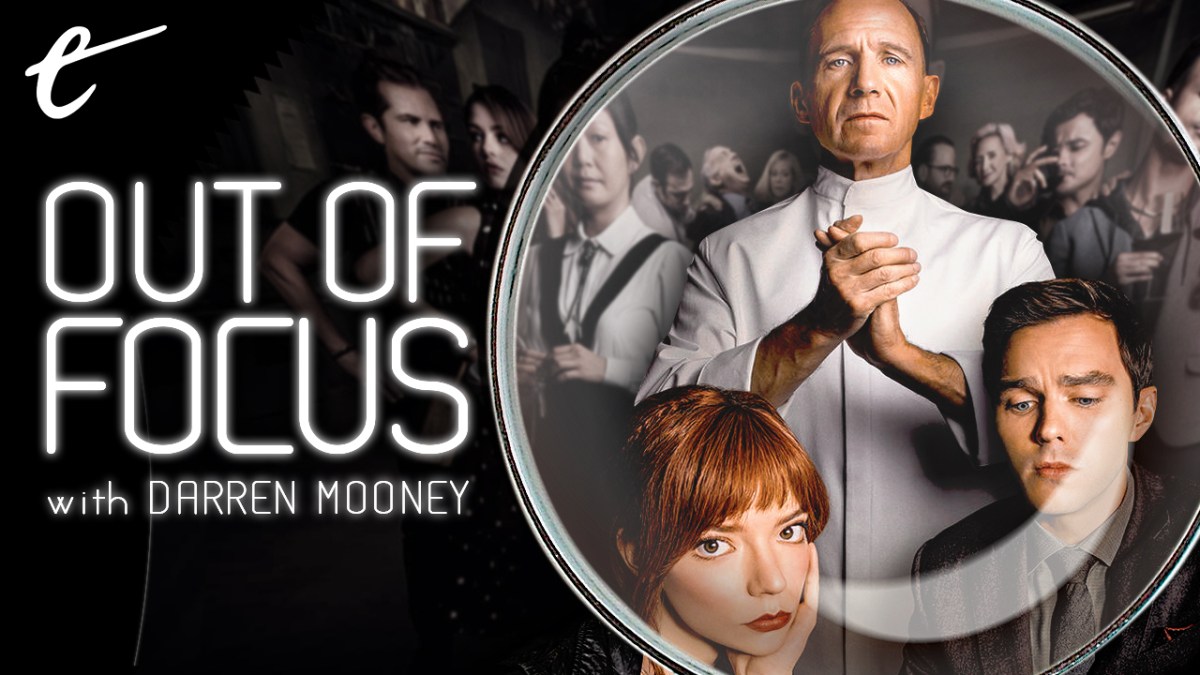Ahoy! We’re launching a new column here, calling it Out of Focus. The idea is that it will be something of a companion piece to In the Frame but maybe looking at smaller movies, maybe even older movies, and shows a little bit outside the remit of In the Frame. The plan is to try it fortnightly, see if it’s something people like or interested in. We thought we’d launch it with a discussion of The Menu, the black comedy movie now streaming on HBO Max.
The Menu has largely been discussed as part of the trend of increasingly popular “eat the rich” comedies, often shaded with darker and even horrific elements. It is easy to see why The Menu has been identified as a companion piece to recent projects like Knives Out, Glass Onion, Ready or Not, Triangle of Sadness, and The White Lotus. It is a movie about a group of largely rich and largely terrible people gathered in one place, where horrific (and karmic) violence happens to them.
However, there is something more complicated at work in The Menu. In many ways, Mark Mylod’s dark satire feels like a movie about these types of films rather than another example of the form. The Menu is fascinated by Chef Julian Slowik (Ralph Fiennes), the architect of this cathartic culinary carnage. However, although Fiennes receives top billing and the film studies Slowik, the head chef of the movie’s exclusive island restaurant is neither the hero nor the protagonist of The Menu.
The Menu follows an elite group of diners who visit the expensive restaurant known as Hawthorn, operated by Slowik. Slowik is a celebrity chef, and Hawthorn enjoys considerable cultural cachet. The meals are legendary; Slowik introduces each course with an earnest lecture about the significance of the dish being served. As the evening progresses, it becomes clear that Slowik has crafted something more than overpriced food, and his guests will not survive the experience.
The Menu isn’t especially interested in the customers assembled for this feast. The supporting cast are drawn in very broad and generic terms, including a trio of tech bros (Rob Yang, Arturo Castro, and Mark St. Cyr) who work for the angel investor who funded the restaurant. There’s really only one guest that holds the movie’s attention. Erin (Anya Taylor-Joy), who goes by the name Margot, is a sex worker that Tyler (Nicholas Hoult) paid to attend dinner after his girlfriend broke up with him.
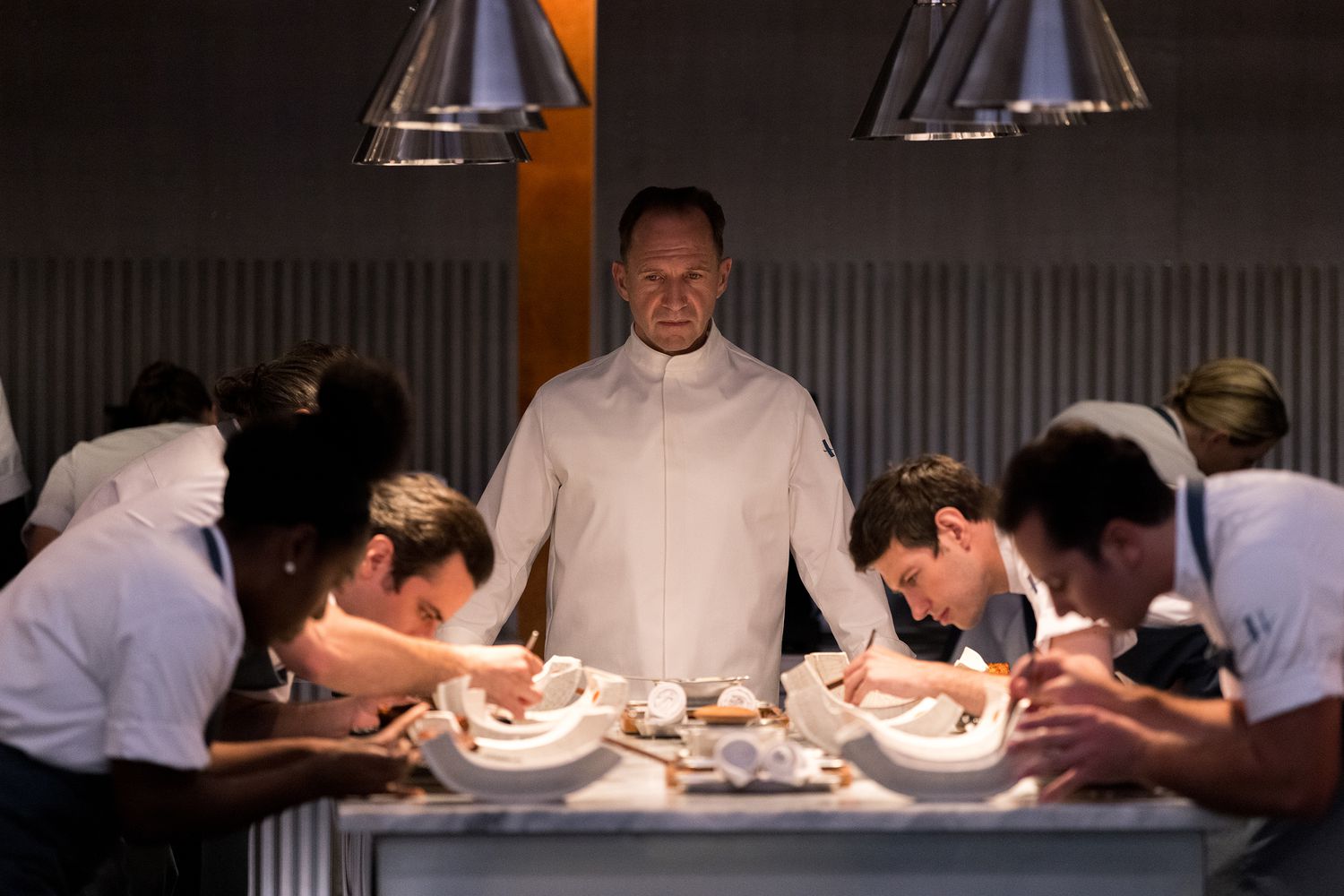
Erin is the hero of the movie, recognizably conforming to the archetype of “the final girl.” She’s largely defined in contrast to Slowik. Slowik recognizes Erin as “a fellow service industry worker” and relates to her “as one provider of experiences to another.” Much of The Menu is a battle of wills between Erin and Slowik, particularly as it relates to the idea of service and custom. Erin and Slowik adopt very different approaches to their chosen artforms and see their roles in different ways.
The Menu is nominally about food. However, it’s not really about food, any more than Ratatouille is really about food. It is ultimately about the idea of artistic expression. After all, guests at Slowik’s last supper include the washed-up movie star George (John Leguizamo) and the celebrity critic Lillian (Janet McTeer) who “basically discovered Slowik.” Even Tyler is presented as something of a rabid fanboy, who raves about food culture as “art on the edge of the abyss, which is where God works.”
Slowik is incredibly self-important. He delivers heavy-handed lectures about how “nature is timeless” and how bread “is the food of the common man” as handily as George might cynically toss off a speech about “how racism is not so cool, and bingo bongo, Emmy time.” Slowik makes everything about himself. Even his account of his father’s attempted murder of his mother (Rebecca Koon) is self-centered, as he recalls, “I wept. I screamed. I begged him to stop.”
It’s all theater. “The curtain rises,” Lillian wryly notes as one announcement begins. Slowik seems like a parody of an assured movie director. After he shares a tragic story from his childhood, George summarizes, “Yeah, it’s a backstory to what makes him a chef artist.” George could just as easily be discussing recent awards fare like Steven Spielberg’s The Fabelmans, James Gray’s Armageddon Time, or even Sam Mendes’ Empire of Light, with directors recreating their own childhoods.
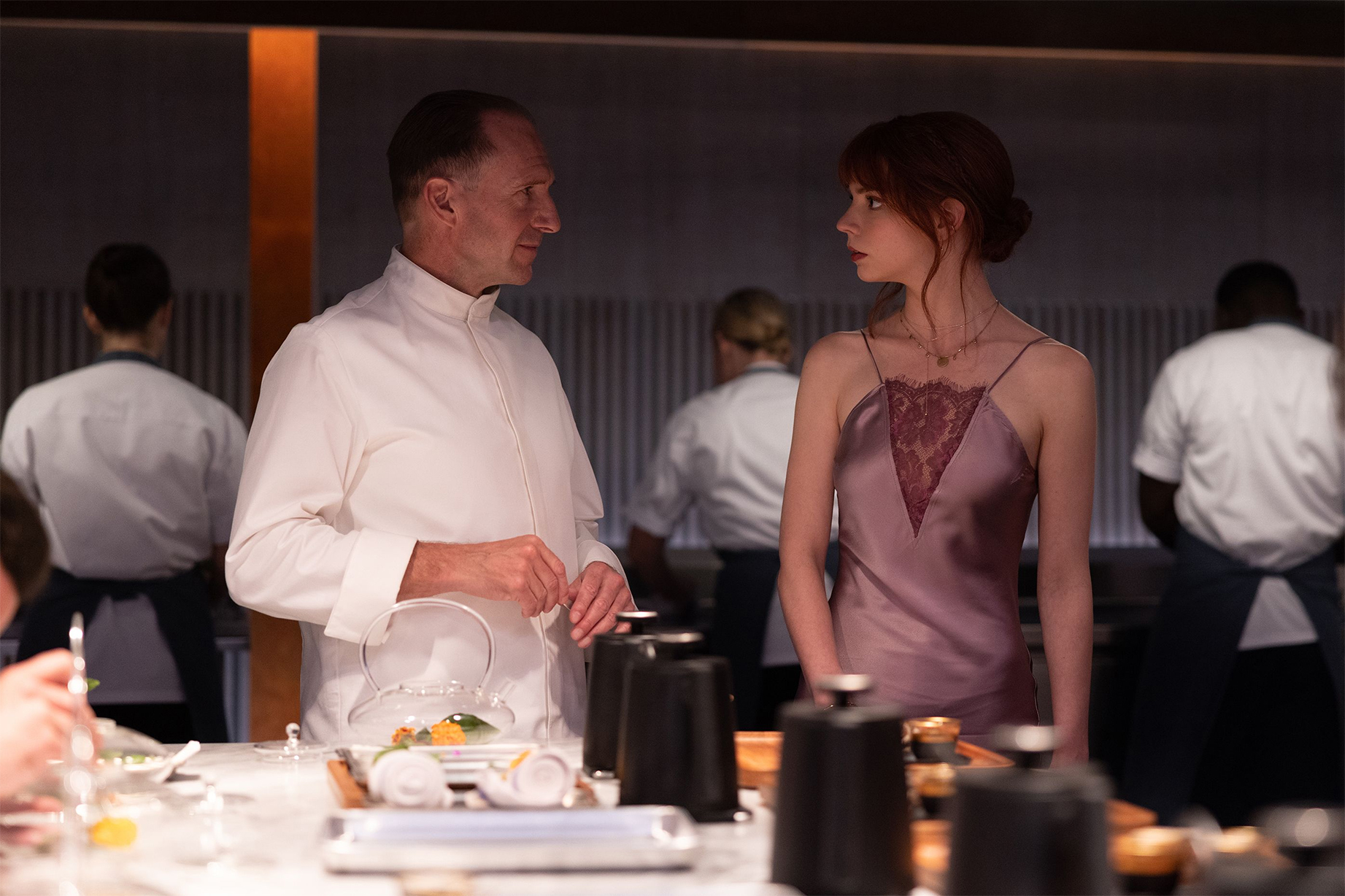
The Menu insists that Slowik’s ego has been fed and enabled by the cult of celebrity around him, people like Tyler who rave about his artistic genius. “I mean, the game is trying to guess what the overarching theme of the entire meal is gonna be,” Tyler tells Erin. “You won’t know until the end.” He elaborates, “Trust me. He’s telling a story. That’s what makes his food so exciting. He’s not just a chef. He’s a storyteller.” No wonder Slowik has an inflated opinion of his own importance. He’s been flattered, coddled, and enabled.
Slowik sees himself doing something virtuous. He talks about “those who give” and “those who take,” suggesting that Erin has chosen to side with “the takers.” At one point, he solemnly tells his victims, “As Dr. King said, ‘We know through painful experience that freedom is never voluntarily given by the oppressor. It must be demanded by the oppressed.’” George incredulously asks of the white chef, “Did he just quote Martin Luther King?” He did, unironically. Slowik is a parody of “right-on” class warfare, the most champagne of socialists.
At one point, Slowik allows one of his cooks, Katherine Keller (Christina Brucato), to chastise him for sexual harassment. She stabs him in the thigh, as he did to his own father. However, it’s a largely symbolic gesture. Slowik continues to run the kitchen. It’s a deeply cynical and self-serving choice, recalling some of the criticism of celebrities like Dan Harmon or Morgan Spurlock for their half-hearted public mea culpas to demonstrate allyship to #MeToo.
The Menu was written by Will Tracy and Seth Reiss. The movie was inspired by Tracy’s trip to Bergen, Norway. Tracy’s previous credits include satires Last Week Tonight with John Oliver and Succession. Indeed, director Mark Mylod is largely known for his work on Succession, which also included Yang among its primary cast. However, The Menu wasn’t written for Mylod. It was originally intended for director Alexander Payne. It came to Mylod through Succession executive producer Adam McKay.
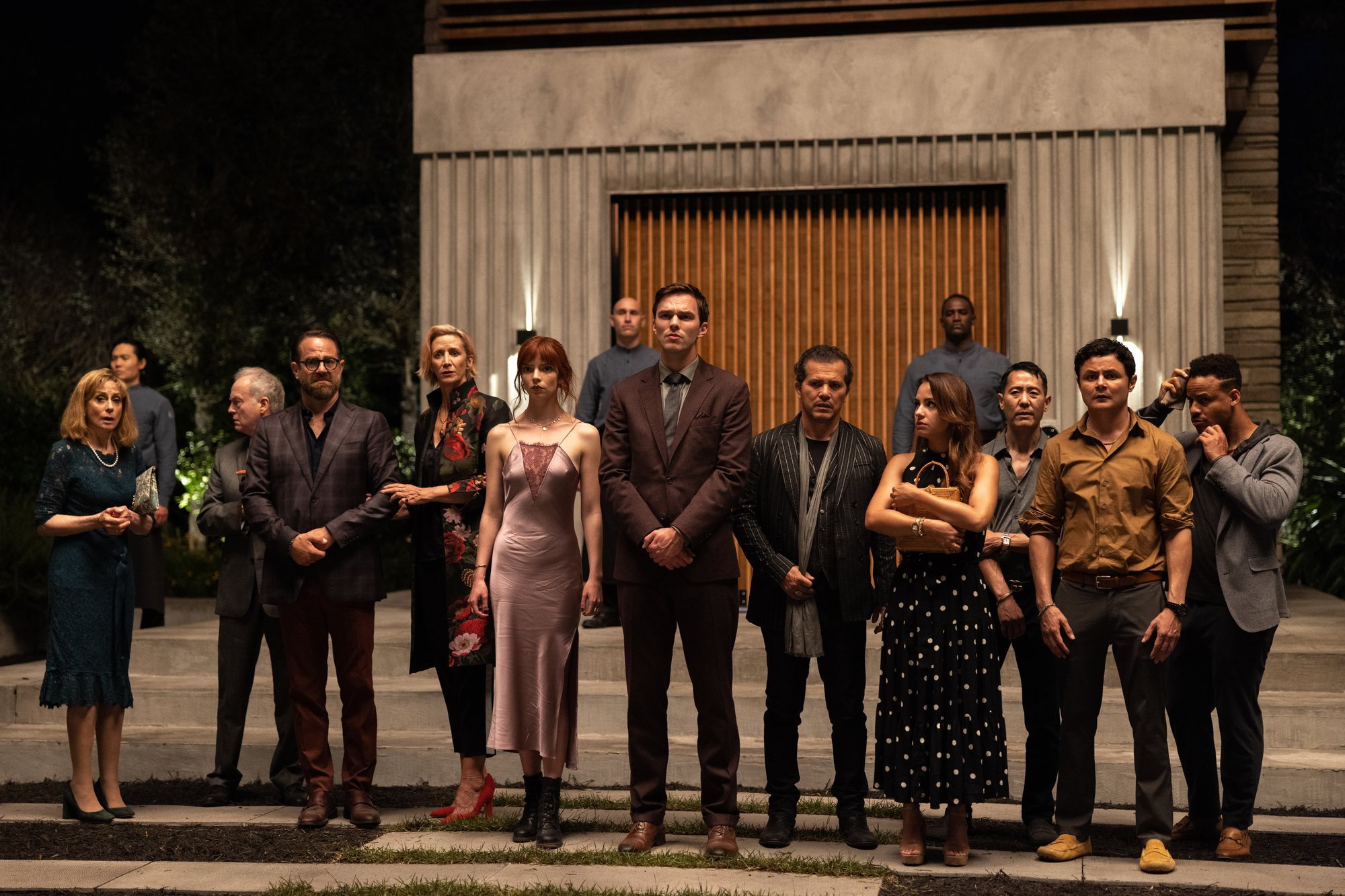
This feels important, because Slowik seems like a particularly pointed and cynical critique of a particular kind of self-assured artist. If The Menu is read as a criticism of filmmaking, then Slowik is a specific kind of director, one with an inflated sense of the importance of their work as a way of making profound statements. To put it indelicately, Slowik is a heightened and absurdist caricature of the kind of filmmaker that some critics assume Adam McKay to be.
McKay is one of a wave of modern comedy directors who have pivoted sharply into earnest awards fare. McKay was famously the head writer on SNL. He broke into feature films with a string of era-defining comedies including Anchorman, Talladega Nights, and Step Brothers. More recently, McKay has redefined himself through a series of satirically charged, socially relevant awards fare including The Big Short, Vice, and Don’t Look Up. He has an Oscar and six more nominations.
It’s a larger trend. Todd Phillips built his fame around comedies like Old School and the Hangover films, before turning to films like War Dogs and Joker. Jay Roach established himself with features like Austin Powers and Meet the Parents, only to direct politically charged HBO specials like Recount and Game Change and then theatrical dramas like Trumbo or Bombshell. Peter Farrelly went from There’s Something About Mary and Dumb and Dumber to Best Picture-winning race-relations movie Green Book.
There has been pushback to these attempts by filmmakers “to retell recent history with big stars, irreverent energy, and a healthy dose of message-movie righteousness.” Peter Bradshaw criticized The Big Short as “smug, laborious and self-important.” Brian Tallerico opined of Vice that “great films about American politics are conversation starters; mediocre ones are like dull lectures, one-sided. This is the latter, and not at a very good college.” Slowik certainly delivers his share of lectures.
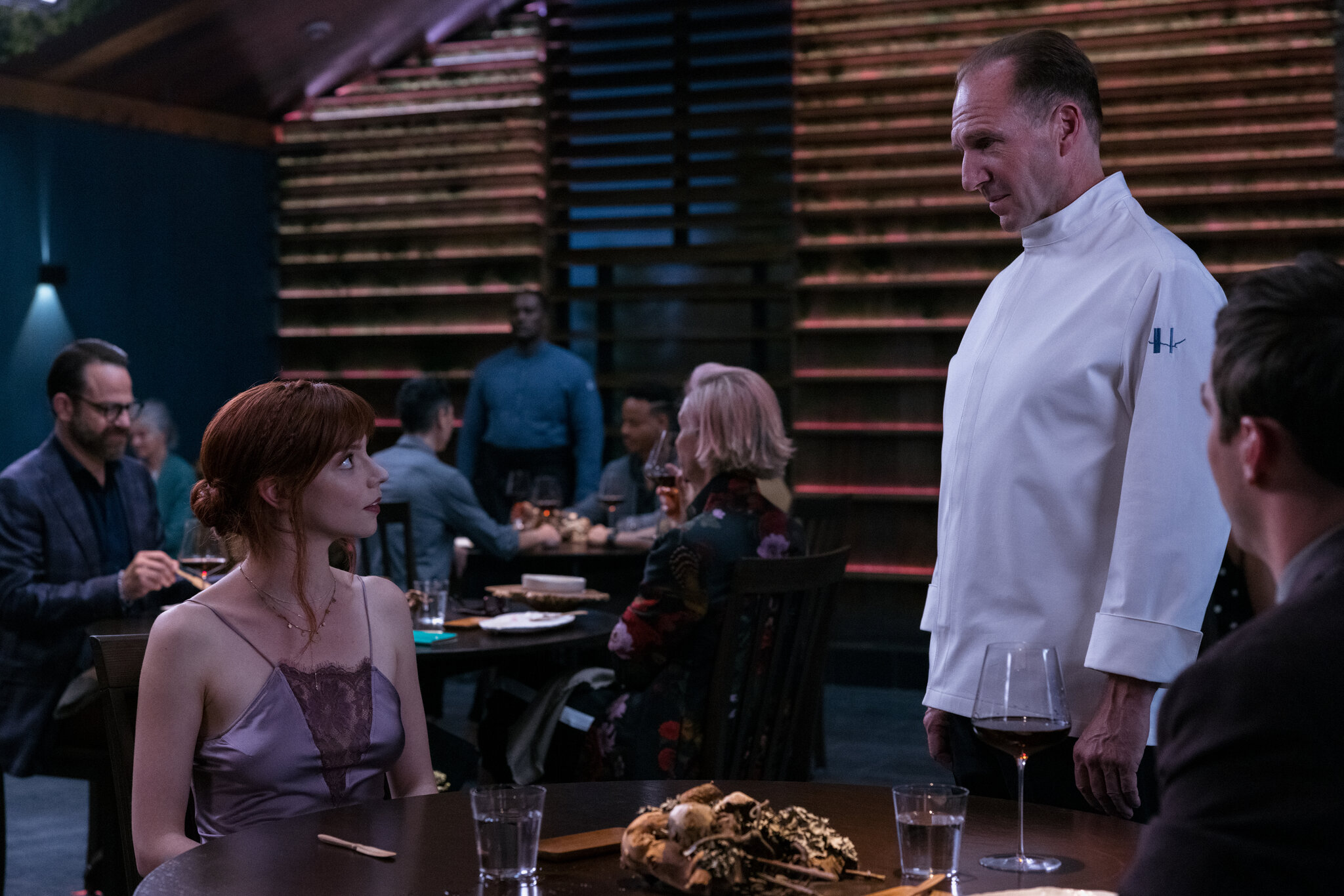
Nick Allen complained that Don’t Look Up revealed McKay as “the most out of touch he’s ever been with what is clever, or how to get his audience to care.” In one pan that feels particularly relevant to discussions of The Menu, Sam Adams compared watching Vice to “eating a meal of table scraps and then being served a shot of raw sewage to wash it down.” One gets the sense that Erin feels pretty much the same way about Slowik’s culinary theater.
Of course, it is too much to say that Slowik is a direct parody of McKay. Instead, he feels like a response to critics of directors like McKay and Roach, who have moved away from “laugh-out-loud if ultimately disposable comedy” in search of something ostensibly more profound. To his credit McKay can accept criticism, confessing of Vice, “I made mistakes, read the reviews and went, ‘Yes, fair.’” It seems likely that McKay saw that commentary in The Menu and responded to it.
“I’m a 53-year-old white guy, and it happened that I chose a profession that pays probably a hundred times more than it should,” McKay told Vanity Fair in November 2021. “If there’s justice in the world, I’d probably be making $140,000 a year. My daughter looks at me like I’m the fucking Monopoly guy.” There is perhaps a resonance in The Menu as a cautionary tale about Slowik as a young artist who made fast food and who was ultimately corrupted by proximity to wealth and flattery. He’s too close to wealth to speak to it truthfully.
The Menu ultimately sides with Erin’s critique of Slowik’s self-important performativity. “Every dish you served tonight has been some intellectual exercise rather than something you want to sit and enjoy,” she complains. “You’re a chef. Your single purpose on this earth is to serve people food that they might actually like, and you have failed.” Erin doesn’t need Slowik to tell her that the other patrons in this restaurant are awful people; she just wants a good meal. What does Slowik have to say about the rich that Erin doesn’t already know?
For all Slowik’s lectures and metaphors, The Menu suggests that the most fulfilling meal of the night is a $9.95 cheeseburger like the ones he cooked in his earlier days. Stripping back the heavy-handed lectures and theatricality, The Menu allows Slowik to offer — to quote another celebrity chef — “finally, some good fucking food.”
Related: All Courses On The Menu & What Their Meaning is on Twinfinite

